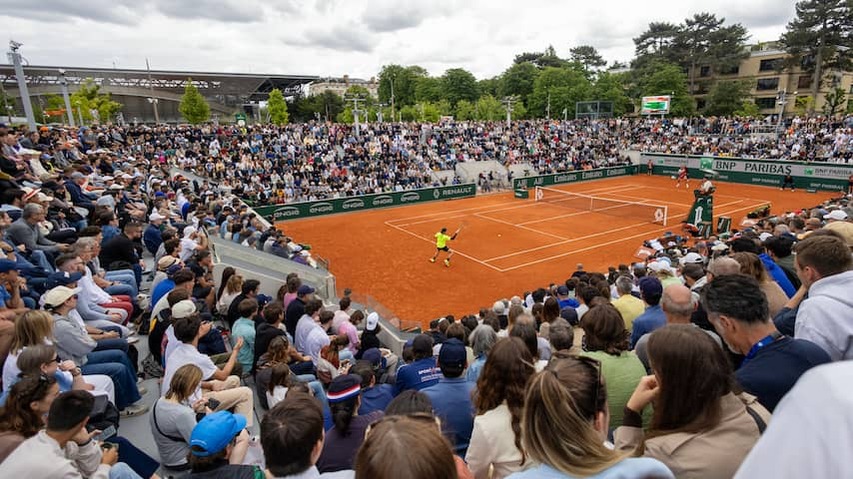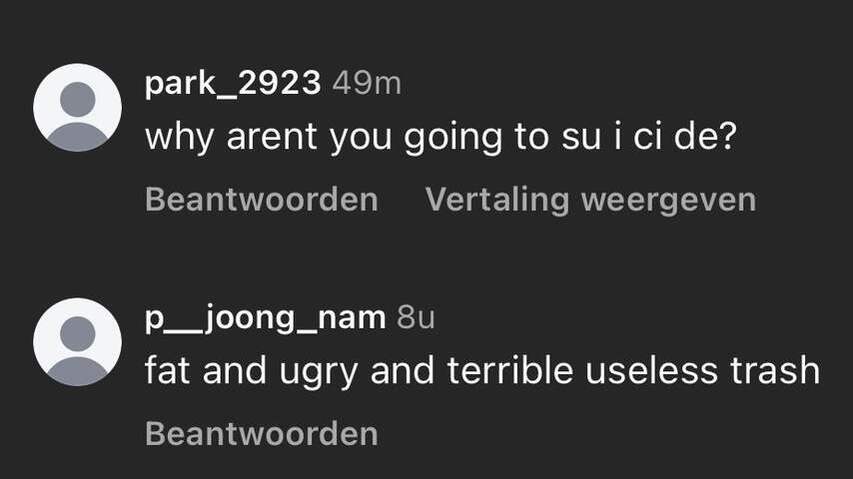
More and more bets are being placed on sports matches. As a result, tennis players are faced with threats and hate messages from gamblers after every match. Not only players themselves are being harassed, but also family members are suffering. “Very intense.”
Shortly after his elimination in the first round at Roland Garros, his Instagram inbox is flooded. Tennis player Botic van de Zandschulp doesn’t want to pay attention to it, but the hate messages weigh heavily on him.
“What a piece of shit you are. You are a stupid motherfucker and a fucking clown,” is written under his latest post about Paris. “You should be injured forever,” someone else writes. The message ends with five coffin emojis.
“Sometimes there are dozens, but often it goes towards a hundred,” says the 29-year-old Van de Zandschulp after his defeat in Paris against the American Emilio Nava. “Even when I win, they get angry at me.”
By ‘they’, Van de Zandschulp means gamblers who are constantly sending hate messages to tennis players. “It has become increasingly worse in recent years. It is increasing significantly compared to my first years as a professional tennis player.”


‘It’s really very intense’
Van de Zandschulp himself can still shut himself off from the threats he receives, but as soon as his family is harassed, it gnaws at him. “My brother also often receives messages. I find that very intense.”
Arantxa Rus, Tallon Griekspoor, and Suzan Lamens also prefer not to look at their phones after a lost tennis match. “I even receive hate messages via my email,” says Rus. “I don’t read them, but it comes close. It’s just not right.”
Griekspoor finds it particularly sad. “Last week during a tournament in Bordeaux, I was heavily favored. Then you really get torn apart after a defeat.”
“But yes, those people are gambling from a frustrated feeling,” Griekspoor continues. “Four years ago, I still responded to it, but I don’t anymore.”
Protective software is hardly used by Dutch players
The threats and hatred from gamblers towards tennis players have been a major issue for much longer. As early as 2013, Robin Haase called on the tennis federations to tackle frustrated gamblers who were even threatening him with death. Since then, the rise of social media has offered gamblers a much larger platform to bombard tennis players.
The measures at major tournaments to protect tennis players against online threats are only partially effective. At Roland Garros, players can use an app that filters hate messages using AI technology, but not everyone seems to be aware of this.
“I’ve never heard of that,” says Van de Zandschulp. “It sounds like a good system. That would help.”
Lamens also reacts surprised. “Does that exist? That would be nice. I myself have already taken measures by turning off the reaction option for non-followers on Instagram. But this would be even better.”
After her defeat in the first round at Roland Garros, turning off those reactions turns out to be only a drop in the bucket for Lamens. “Why don’t you choose suicide,” is written under her latest Instagram post shortly after her match.

KNLTB provides information
The international tennis federations ITF, ATP, and WTA have made efforts in recent years to address the problem. They launched the Threat Matrix system, which uses AI to monitor and track the messages under tennis players’ posts.
The system monitors offensive and threatening content on X, Instagram, YouTube, Facebook, and TikTok. According to the Dutch tennis players, most of the garbage comes in through these channels.
In the period between January 2024 and October 2024, the system checked 2.47 million messages on the social media channels of tennis players. Of these, twelve thousand messages were hateful towards the tennis players.
The Dutch tennis association KNLTB is also shocked by the many hate messages that the Dutch players receive. “It is an unpleasant development,” says a spokesperson. “We provide our players with information about what to do, how and where to report this. Fortunately, the automatic filters of the ATP and WTA help.”

Swiatek was even harassed on the court
Yet all these measures do not appear to be sufficient. Tennis players are still vulnerable. “Fortunately, it is limited to online hate,” says Lamens, who has never been harassed further.
Yet she feels unsafe as a professional tennis player. “Although the WTA does have a safety program. That is also necessary when you see what happened to Iga Swiatek this year.”
Lamens is referring to a spectator who harassed the Polish top tennis player during the WTA tournament in Miami. The same man harassed her on social media. Swiatek needed extra security.
The right solution has not yet been found, but the connection with legal betting on sports matches is undeniable. The popularity is increasing, which also increases the number of hate messages. “It has never been this bad,” concludes Van de Zandschulp.